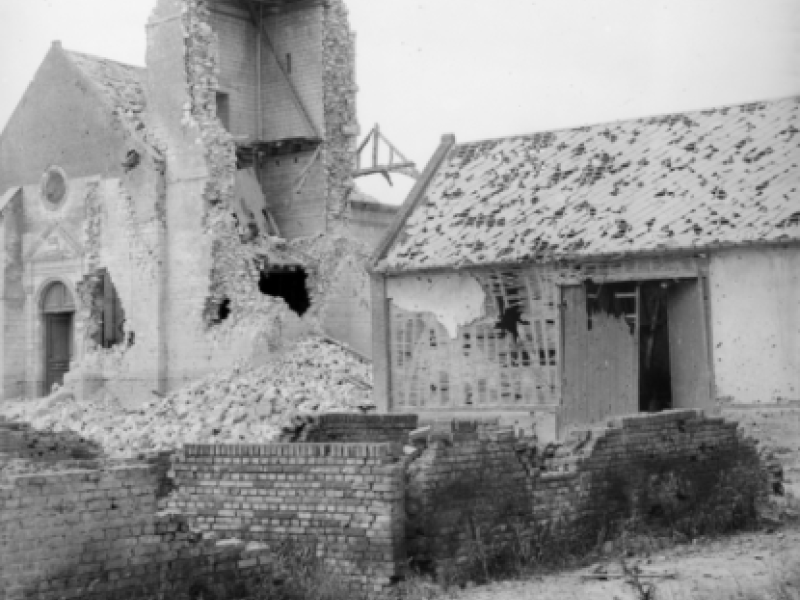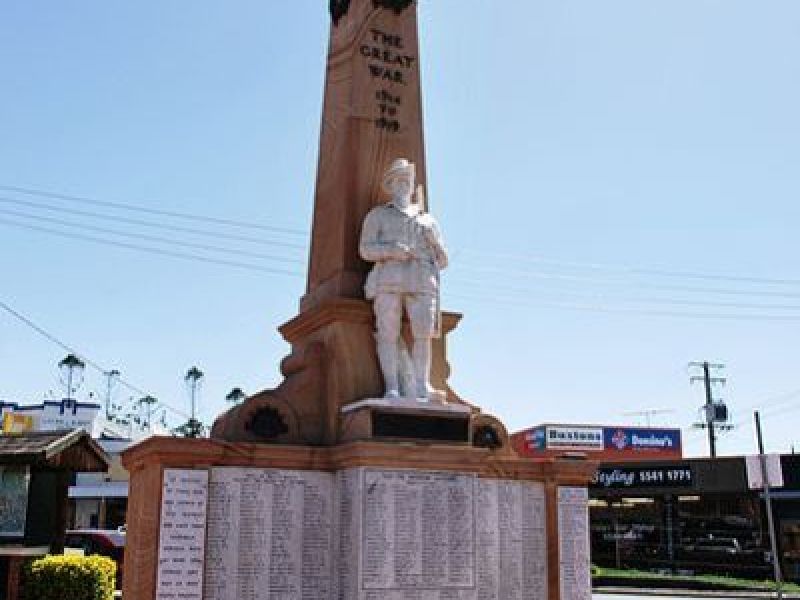Private Charles Dunn, 42nd Battalion AIF
Charles Dunn was born on 10 March 1898 in Caterham Valley, Surrey, England, to William and Emily Dunn. He had a twin sister, Louisa, as well as an elder brother, William, an elder sister, Kate, and a younger brother, Herbert.
The family moved to Rugby in Warwickshire when Dunn was a young boy, and he was educated at Rugby Council School. When he was 15 the family immigrated to Australia and settled in Beaudesert, Queensland.
When the First World War began Dunn was working as a farmer on his family’s farm at Running Creek. He enlisted on 30 May 1916, just a few months after turning 18. After his initial training he was allotted to the 3rd reinforcements to the 42nd Battalion. He embarked from Brisbane that September aboard the transport ship Clan MacGillivray, bound for England.
After a period of further training Private Dunn sailed for France and joined the 42nd Battalion in late January 1917. He took part in his first major battle at Messines in June and in actions at Warneton in late July, and Broodseinde and Poelcappelle in October. Here he was wounded in the thigh by shrapnel as the 42nd Battalion went into reserve. He was evacuated to Boulogne for treatment and returned to his battalion in late January 1918.
In February, Dunn was given a two-week furlough to England but had returned to his battalion in Belgium when the German Spring Offensive began in late March 1918. The 42nd Battalion was rushed south to help stem the German advance.
On 5 April, the battalion was under artillery fire in positions near Vaux when a German shell exploded near Dunn, killing him and two others. He was 20 years old.
Charles Dunn was buried at Heilly Station Cemetery at Mericourt–L’Abbe. His death hit his family hard, particularly his twin sister, Louisa, whose simple message in the Beaudesert Times spoke of her grief:
“In proud and loving memory of my dear Brother, who was killed in France … What though in loving grief I sigh, For him beloved no longer nigh; Submissive would I still reply, Thy will be done.”
Michael Kelly, Historian, Military History Section
Image: The ruins of the church in a Somme village that was occupied by the troops in rest billets in 1916, and by Battalion Headquarters after the German spring offensive in 1918. The remains of steps leading to an observation post in the tower may still be seen.

 Australian War Memorial
Australian War Memorial